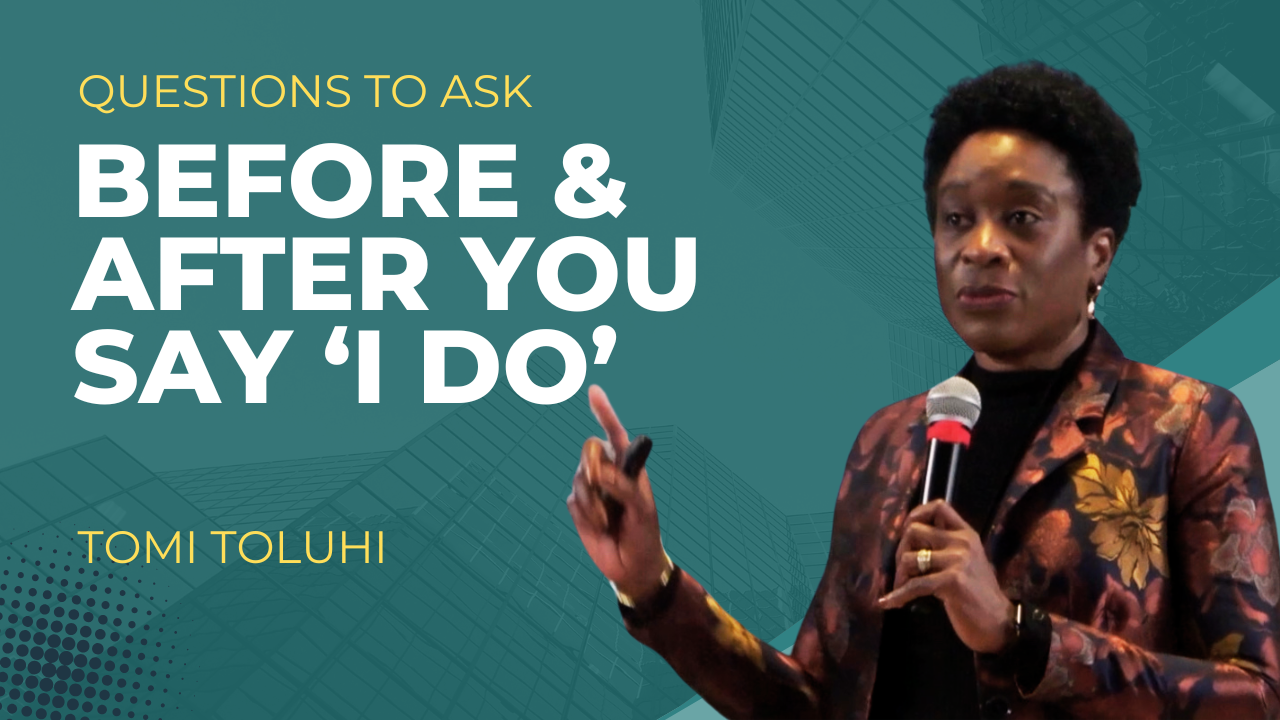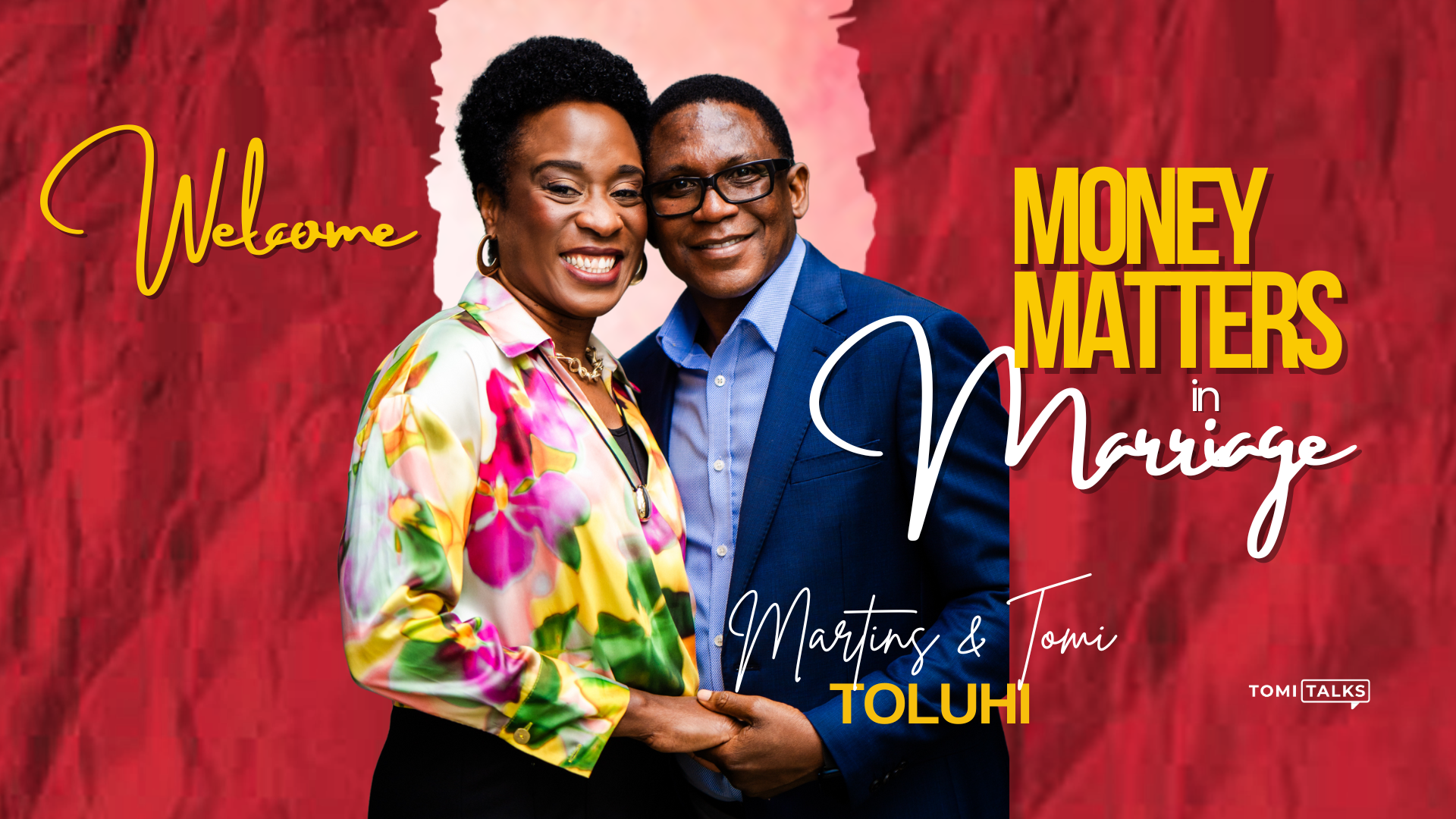When work and family collide
Work is a blessing. One of the first things that God did when He made man was to give him work. God works. He designed work to give us a sense of fulfilment and contribution. A chance to use the multi-layered abilities and gifts He has given us to bless our world.
God values our work ethic so highly that the scriptures in 2 Thessalonians 3:10 go as far as to command, ‘The one who is unwilling to work shall not eat’.
Idleness is not an option as far as God is concerned. Paul explains why in Titus 3:14 [MSG]. ‘Our people have to learn to be diligent in their work so that all necessities are met (especially among the needy) and they don’t end up with nothing to show for their lives.’
That said, what do you do when work begins to collide with your family life? When what was designed as a blessing begins to have a negative effect on the covenant of marriage instituted by God? Harmony in a marriage can be profoundly affected by inability to manage the delicate balance between commitment to work and family. Everything from communication to companionship to sex life and the ability to make decisions as a team are impacted by poor work-life balance.
The price of intimacy
Intimate marriage partnerships are built on shared experiences with your spouse. There are no short cuts to intimacy. Sharing quality time together is the only way. If you want to get to know someone – God, your spouse, your children – you have to spend time interacting with them. This was probably what God had in mind when He instructed the Israelites in Deuteronomy 24:5, ‘When a man has taken a new wife, he shall not go out to war or be charged with any business; he shall be free at home one year, and bring happiness to his wife whom he has taken.’
Talk about extreme honeymooning! God clearly wanted every marriage to have the strongest foundation and the best chance of thriving by prioritising shared experiences between husband and wife in the first year of marriage.
In today’s fast-paced world, couples spending time together has become a luxury. Work demands more and more of our time and gives us less and less flexibility. Not only are spouses casualties of the excessive working habits of their partners, children also bear the brunt of absentee parents. Children learn by modelling. They can only emulate you if they actually have the opportunity to interact with you. How else can we pass on our faith and values? It is not the church’s responsibility to take the lead in teaching children about Jesus. That responsibility lies squarely at the doorstep of the parent.
The impact of work on family life is even more marked in single parent families where the parent has no other option than to work long hours and no back up in raising the children effectively. The single parent has to balance the responsibility of being the sole breadwinner and the sole care giver for their children.
Work pressure and family life
Work pressure can present itself in many different ways which are detrimental to family life. Long, irregular or inflexible work hours, excessive workloads, conflict at work or excessive travel can place a tremendous amount of strain on family life. Furthermore, importing work stress into the home upsets the emotional balance in the home. Overreacting or irritability with your spouse or children is frequently the first symptom of this.
Work pressure is not restricted to employees alone. Some people venture into entrepreneurship with a desire to take control of their time and then find themselves unable to regulate their work patterns. Because they are now responsible for the success of the business they work longer hours and shoulder all the stress of making the business work.
Workaholism differs from work pressure in that it is self-imposed pressure of work as opposed to pressure exerted by an employer or the business demands. Compulsive overworking and the inability to regulate work habits is a character trait that can do untold damage to relationships.
Technology has made achieving work-life balance even more challenging. It used to be the case that when you left work you left your work at work. Now your work follows you home in the shape of your laptop, tablet or mobile phone. Unless appropriate boundaries are established between your home life and your work life, you will soon find that most of your waking hours are consumed with work.
Balance matters to God
Rest matters so much to God that the very first chapter of the Bible records Him resting, demonstrating how critical rest is to all round productivity. God went further to enshrine a day of rest in the Ten Commandments and even Jesus, despite having a world to save, had a clearly established rhythm of work and rest. He knew when to focus on the crowd, when to spend time with His inner circle and when to spend time alone with God. If Jesus the Saviour of the world was able to establish a balanced lifestyle, you can too. You wonder how? The key is found in three words.
Setting appropriate priorities
Balance begins by asking yourself a simple question. ‘What matters most to me?’
If your family matters to you, invest in them. Marriage is built on relationship and you can only relate when you are present and available to your spouse physically, mentally and emotionally. Intimacy is strengthened by shared experience so if you are missing out on most of the important experiences and life events in the lives of your spouse and children that is bound to affect the level of closeness you feel in your marriage. Many workaholics try to justify they work habits by convincing themselves that they are doing it all for their family. That may be so but it is pointless to lose your family in the process of trying to provide for them. No amount of success at work can adequately compensate for a failure to capture the hearts and minds of your spouse and children.
The remedy is to actively schedule your spouse and children into your day so that they don’t fall to the bottom of your priority list. Sometimes that means saying no to doing some good things so that you can invest in the most meaningful things in your life. When all is said and done and you prepare to draw your last breath, you will not ask for your bank manager or boss to stand by your bedside; neither will you be comforted by the thought of your bank balance, assets or awards; you will only ask for what matters most – your family – so give them appropriate priority while you still can.










